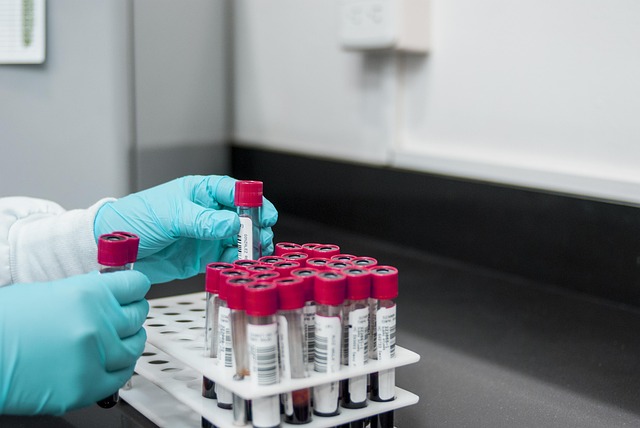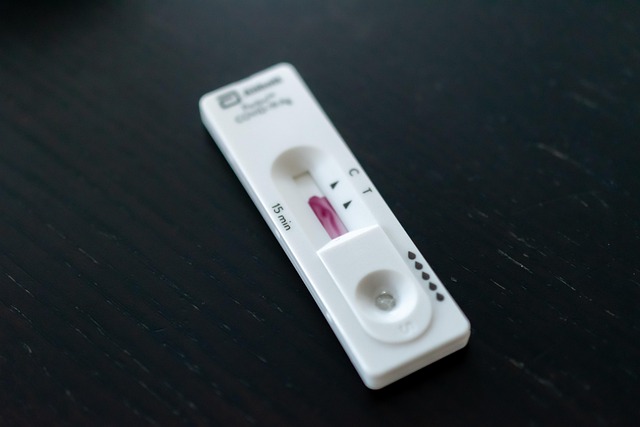The Diabetes Blood Test UK is a powerful tool for managing reproductive health alongside diabetes. By analyzing key hormones like estrogen, progesterone, and testosterone, healthcare providers can diagnose and treat conditions such as polycystic ovary syndrome (PCOS) and irregular periods. Early detection through this test enables timely intervention, potentially enhancing fertility prospects. This multifaceted approach combines blood analyses, physical exams, and patient history to identify hormonal imbalances and provide personalized treatment options, including lifestyle modifications and hormonal replacement therapy.
Exploring hormone analysis is pivotal in unraveling reproductive mysteries. This comprehensive guide delves into the intricacies of hormonal imbalances, focusing on their impact on fertility. We examine the Diabetes Blood Test as a powerful tool for identifying such imbalances, highlighting its role in reproductive health assessments. Furthermore, we explore the UK’s approach to hormone testing and treatment options, providing insights for those seeking understanding and solutions.
- Understanding Hormone Analysis for Reproductive Health
- Diabetes Blood Test: A Tool for Identifying Hormonal Imbalances
- UK's Approach to Hormone Testing and Treatment Options
Understanding Hormone Analysis for Reproductive Health

Hormone analysis plays a pivotal role in diagnosing and managing reproductive health issues, offering crucial insights into an individual’s hormonal balance. This process involves assessing various hormones in the body, such as estrogen, progesterone, and testosterone, which are integral to fertility and reproductive functions. By examining these hormone levels, healthcare professionals can identify imbalances that may contribute to conditions like polycystic ovary syndrome (PCOS), irregular periods, or infertility.
In the UK, diabetes blood tests often include measures of hormonal health alongside glucose levels. These tests are essential for managing both diabetes and reproductive challenges, as fluctuating hormone levels can impact insulin sensitivity and overall metabolic control. For instance, a diabetes blood test may detect elevated androgen levels in women, indicating potential PCOS, which requires tailored treatment to regulate hormones and support fertility.
Diabetes Blood Test: A Tool for Identifying Hormonal Imbalances

In the quest to uncover reproductive issues, a simple yet powerful tool is often overlooked: the Diabetes Blood Test. This routine check, commonly known as a glycaemic control test in the UK, isn’t just for diabetes management. It serves as a gateway to identifying hormonal imbalances that can impact fertility. By measuring blood sugar levels, this test can reveal insights into an individual’s overall hormonal health.
For instance, elevated blood glucose readings may indicate conditions like polycystic ovary syndrome (PCOS), which is closely tied to insulin resistance and hormonal disruptions. Early detection through a Diabetes Blood Test UK can be life-changing, as it allows for timely intervention and management of these imbalances, potentially enhancing fertility prospects.
UK's Approach to Hormone Testing and Treatment Options

In the UK, hormone analysis plays a pivotal role in diagnosing and treating reproductive issues. The National Health Service (NHS) offers comprehensive services for both men and women facing fertility challenges. One notable aspect is the availability of diabetes blood tests as part of the evaluation process. These tests are crucial in identifying hormonal imbalances that could be linked to insulin resistance or other metabolic conditions commonly associated with diabetes.
The UK’s approach to hormone testing involves a multi-faceted strategy, combining specialized blood analyses, physical examinations, and patient history reviews. Following initial assessments, treatment options range from lifestyle modifications such as diet and exercise interventions to prescription medications and, in more complex cases, hormonal replacement therapy. This holistic approach ensures that patients receive tailored care that addresses the underlying causes of their reproductive issues effectively.
Hormone analysis is a powerful tool in navigating reproductive health issues, offering insights into hormonal imbalances that can be addressed through tailored treatments. In the UK, advanced diabetes blood tests have proven effective in identifying these imbalances, leading to improved fertility outcomes. By understanding the available testing methods and treatment options, individuals facing reproductive challenges can take proactive steps towards restoring balance and achieving their family planning goals.
